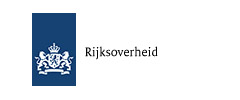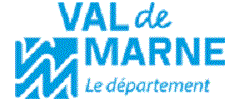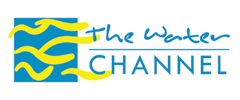CLEEN project ends: joint activities continue!
Three years of activities have led to the creation of a network of experienced public organizations involved in local energy policies, with a focus on energy efficiency.
25.10.2017 |

Three years of activities have led to the creation of a network of experienced public organizations involved in local energy policies, with a focus on energy efficiency. The organizations active within the CLEEN project will, however, continue to work together by launching the first public assessment in Eastern Europe regarding action plans for the sustainable energy development of cities.
DOWNLOAD THE FULL PRESS RELEASE HERE (PDF)
October 14-16, saw the last official joint meeting of the CLEEN network, taking place in Moldova. Representatives of 20 non-governmental organizations from Armenia, Germany, Georgia, Moldova and Ukraine met up to discuss the results of their local and national activities in the field of energy efficiency the past three years and share their success stories and achievements.
Information campaigns are one of the key elements of CLEEN. The Armenian NGO Ayrudzi run out a very successful campaign on the potential of decentralized renewable energy with public participation, which was also the starting point of their cooperation with the municipality of Basen.
NGO and municipalities will establish jointly the first energy cooperative in Armenia producing energy with photovoltaik (solar energy), providing citizens with this locally produced energy and enwabling the public to become members of an energy cooperative and participate in the success of the cooperative.
The past years CLEEN offered various trainings and webinars evaluating the potential of cooperatives for renewable and decentralized energy production and supply in all CLEEN countries with this democratic business model. Also in Georgia the partners already established three energy cooperatives.
As part of the CLEEN Project, participants also developed action plans for sustainable energy development in 3 cities; Kutaisi and Akhaltsikhe in Georgia and Uzhgorod in Ukraine. Signed MoUs with 3 local authorities lead to regular cooperation between CSOs and local governments and via energy efficient measures benefitted the local population.
A network of young organizations
"The idea to create a network of young organizations that promote energy efficiency ideas at the local level and, in cooperation with authorities, implement them, was born in the CLEEN project (Energy Efficiency: coalition on the ground). Within this project, for three years, we trained these organizations on how to use energy efficiently in cities, how to analyze local budgets, how to cooperate with the authorities in matters of energy saving, acquainted them with the best energy practices and instruments used in other countries," comments Ilya Eremenko, coordinator of the CLEEN project in Ukraine.
“We are very pleased that after completion of the project, participants will continue to work together and share their experiences. Unity, support and common priorities in energy consumption and climate conservation are needed now more than ever."
The activists of the network are open to cooperation in the work on energy and climate issues. After this internal networking meeting, they also participate in the CAN EECA* conference to discuss joint action.
CLEEN: Making local grassroots organisations stronger by working on energy efficiency
CLEEN (Civil society Local Energy Efficient Network) is a 3-year EU-funded project aiming to build a partnership of civil society organizations (CSOs), as well as to strengthen CSO's capacities in Armenia, Georgia, Moldova and Ukraine. The project focuses on energy efficiency and cost savings, and increased accountability of local and national authorities on this issue. WECF coordinates this project and provides technical expertise. The project is funded by the European Union, Auswärtiges Amt, GLS Bank and the RAJA foundation.
* The SEAP is a key document in the field of energy in those cities that are participants in the initiative of the Agreement of Measures. The plan outlines the commitments undertaken by the signatory of the Agreement on the reduction of energy consumption and mitigation of climate change. Also, it is planned what actions are planned and how they will be implemented.
* CAN EECA - Climatic network of the countries of Eastern Europe, Caucasus and Central Asia. The network was created to develop common positions and coordinate the work of environmental organizations before and during the UN international climate negotiations. 41 NGOs are members of the CAN EECA network.
Contact Information: Annemarie.Mohr@wecf.org
This project is funded by The European Union
![]()
Related News
Rural Georgians look to the sun to ease energy poverty
Video (6 min): by Deutsche Welle & Maria Lesser on our project in Georgia
04.06.2018
The CLEEN Project and Its Successes
The CLEEN Project, driven by WECF and 3 other local co-applicant organizations, strives to implement energy-efficient policies into local communities in 4 eastern European countries which are Ukraine, Moldova, Georgia and Armenia
13.03.2018
Better energy efficiency in Moldova thanks to insulation of public buildings
Local authorities and WECF partner OA Colaborare cooperate to provide public buildings with proper insulation
18.12.2017
WECF Event in Brussels: “CLEEN Energy has changed our lives”
WECF organised Wednesday June 21 event to highlight Project CLEEN during EU Sustainable Energy Week “CLEEN energy has changed our lives”.
22.06.2017
Who will stop the destruction of trees in Kamiansk (Dniprodzerzhynsk)?
Ukrainian partner Voice of Nature protects the environment in the Ukrainian city of Kamiansk
01.03.2017





































